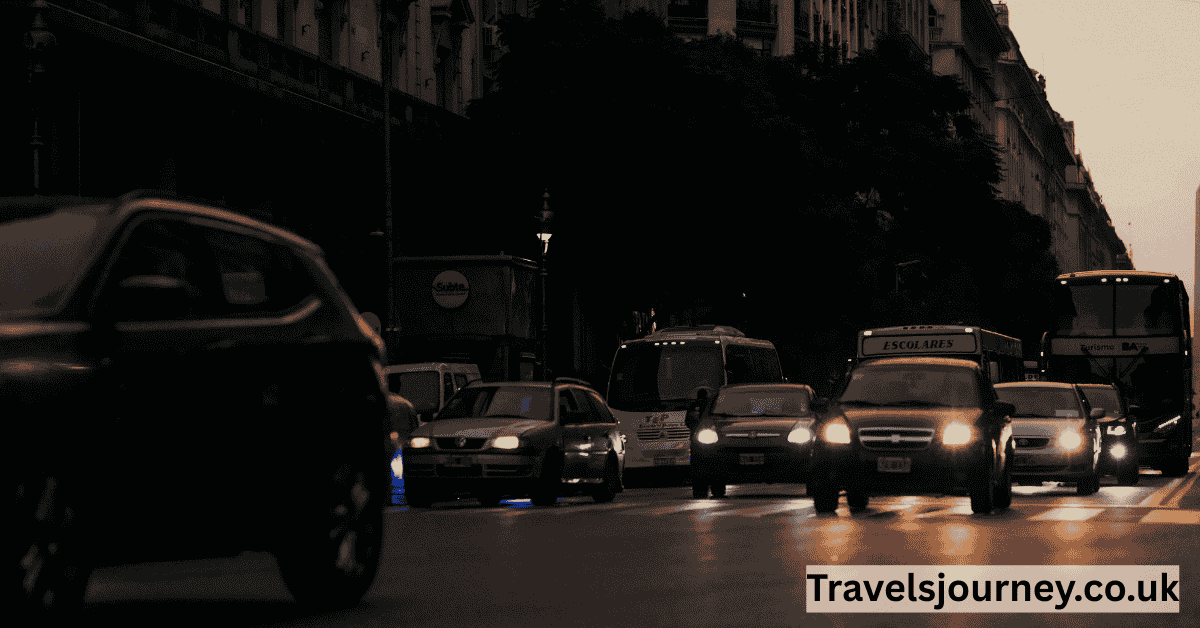Physical Address
304 North Cardinal St.
Dorchester Center, MA 02124
Physical Address
304 North Cardinal St.
Dorchester Center, MA 02124

At a time when sustainability, accessibility and digitalisation are transforming the way we travel, it is important to understand the patterns of travel to help shape the UK’s transport future. Transportation Tomorrow Survey has become an insrument to study how and why people travel in the United Kingdom. The rich insights provided by thousands of responses will be invaluable for transport planning, infrastructure investment, and environment policy for years to come.
In this article, we’ll dive deep into what the Transportation Tomorrow Survey is, how it affects everyday travellers, and what it reveals about the future of transport in the UK.
Travel Tomorrow Survey is a national, longitudinal household travel behaviour survey capturing how, when and why people travel across the UK. Although developed and further enhanced in Canada, comparable approaches are now being adopted in the UK to learn more about our changing patterns of movement in the face of growing population, climate issues and technological innovation.
Respondents document their travel in the course of a 24-hour day, including travel to work, school, recreation, shopping and more. The collected data contain information on travel modes (e.g., walking, cycling, car, bus, train), trip lengths, times, activities etc.
By sifting through this vast collection of data, planners and policy-makers can make data-driven decisions over where to build new cycle lanes, which bus services to improve, and where in the country to invest in rail networks. It also helps local authorities focus improvements according to the needs of individual communities.
The importance of the Transportation Tomorrow Survey is that it is based on the actual experiences of people travelling. Whether you’re a daily commuter in Manchester, a cycling enthusiast in Bristol, or a resident of a rural village in the Scottish Highlands, your travel habits all contribute to help build a picture of how the UK gets around.
Cities such as London, Birmingham and Glasgow are under constant strain, when it comes to congestion, air quality and the need for infrastructure. The findings help local authorities to spot where congestion is building up, and make a case for tackling it, with measures such as congestion charging, new cycle routes or refurbished public transport interchanges.
With the UK set to take carbon emissions to net zero by 2050, knowing how people currently travel is key to encouraging greener options. The survey enables authorities to monitor a switch from car travel to walking, cycling and public transport use, providing an indicator of the success of sustainability initiatives.
Is there a greater number of people working from home after the pandemic? Have electric cars overtaken those run by gas? Is there an increasing appetite for micromobility, like e-scooters and shared bikes? Transportation Tomorrow Survey can answer some of these questions by continuously monitoring evolving patterns of travel behaviour over time.
While the UK version of the Transportation Tomorrow Survey is still expanding in scale, early results are already revealing intriguing trends:
The Transportation Tomorrow Survey not only reflects how the UK travels today, it also serves as a predictive model for what to expect in the years ahead.
With better, contemporaneous data, governments can better allocate transportation funding. So, if a suburb continues to demonstrate a high reliance on car use and low levels of its accessibility to public transport, councils could cut bus services or park-and-ride facilities.
The survey also points to transport inequality by breaking down responses according to age, income, mobility and place. Making it easier for the elderly and disabled to get around, and not leaving rural communities in the lurch will be vital to ensuring an unfragmented transport network.
The next decade will see increased use of AI and smart sensors in urban planning. With tools like the Transportation Tomorrow Survey, cities can predict travel demand in real time and adapt services accordingly, whether it’s adjusting bus schedules or managing traffic signals dynamically.
Want to have your voice heard? Several local authorities from time to time ask the public to volunteer for regional travel surveys. Watching for news from Transport for London, local councils or the Department for Transport can provide opportunities to help influence the future of your city’s transport system.
You can follow other ongoing survey updates and results on official government transport portals, or on data visualisation platforms that release mobility trends.
As the UK navigates toward a smarter, greener, and more connected future, understanding how people move today is the first step. The Transportation Tomorrow Survey is more than just a questionnaire, it’s a strategic tool shaping the nation’s infrastructure, environmental goals, and everyday experiences.
At transporthubuk.co.uk, we know that travelling is enjoyable when you’re well informed. So whether you’re organizing a weekend getaway, going to work or getting ready for a time away, it’s useful to know the direction travel in the UK is heading to help you travel flexibly, sustainably, and efficiently.
Stay tuned as we delve deeper into not only how projects like the Transportation Tomorrow Survey will shape the way we move about in the future, but how we get from A to B and beyond.